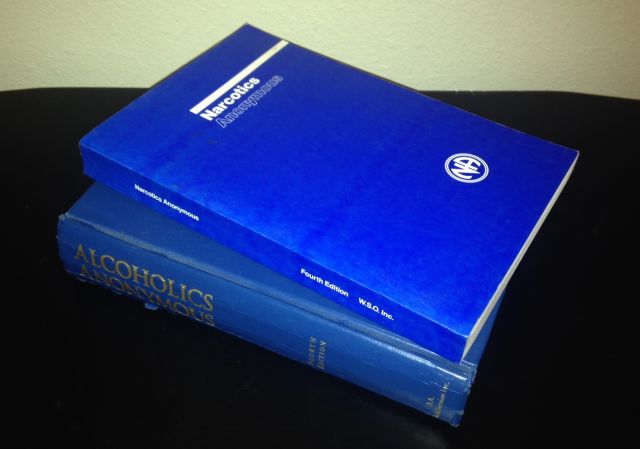 For years now, judges and counselors have been referring people to 12-Step Meetings such as Alcoholics Anonymous (AA), Narcotics Anonymous (NA) and in more recent years, Celebrate Recovery (CR). Anyone who works in the alcohol and drug treatment field knows what “90 in 90” means. People in trouble for alcohol and drugs are often advised (and sometimes ordered) to attend 90 of these support meetings in 90 consecutive days.
For years now, judges and counselors have been referring people to 12-Step Meetings such as Alcoholics Anonymous (AA), Narcotics Anonymous (NA) and in more recent years, Celebrate Recovery (CR). Anyone who works in the alcohol and drug treatment field knows what “90 in 90” means. People in trouble for alcohol and drugs are often advised (and sometimes ordered) to attend 90 of these support meetings in 90 consecutive days.
Drug Court programs across the country typically require some type of attendance at these support meetings. Treatment programs nearly always recommend clients attend meetings while engaged in and after completion of treatment. In Oklahoma, the Department of Public Safety even requires some high level DUI offenders attend “mutual support meetings” as a condition of license reinstatement.
Some of those requirements could be changing. While some argue that AA has no religious aspects, five of the 12 steps make direct reference to God. The National Drug Court Institute lists several cases indicating that “mandating [an] individual to Alcoholics Anonymous/Narcotics Anonymous (AA/NA) is a violation of the First Amendment.
Some courts have started offering non-religious alternatives to AA and NA such as Smart Recovery. Others have simply eliminated the support meeting requirement altogether. While this may be welcome news for some of the “old timers” who openly criticize those who come to meetings “just to get their paper signed”, it has the potential to significantly reduce the number of people put in contact with AA.
How many current AA or NA members were initially “court ordered” to attend the meetings? Of course no one can know for sure but one AA organization acknowledges that “many of us were sent to our first AA meetings by judges”. While AA is now an international organization with an estimated two million members in over 170 countries, the majority of its membership comes from the United States and Canada.
These actions could ultimately impact some treatment facilities. While some providers have embraced newer evidence based models of treatment, many still adhere to what is known as the Minnesota Model. The Minnesota Model blends (sometimes heavily) the principles of AA into a clinical treatment experience. Many of these facilities receive State funding and court ordered clients and as a result, could also be in violation of the First Amendment.
I’m conflicted over the matter because while I’ve seen the promises of AA at work in many lives. I’ve also seen those turned away by the religious aspects of the organization. In reality, I think many are turned away by the negative “my way or the highway” attitudes of a few members who apparently missed some of the core principles of the program. Some may argue the programs would be strengthened without court ordered referrals.
While working at a residential treatment facility, we transported clients to off-site AA meetings twice a week. They were “open meetings” that allowed those of us without alcohol problems to attend. Our clients, some with alcohol and some with drug problems, were allowed to attend and participate in the meetings. I learned a great deal about life and living sitting in those meetings and listening to the stories of experience, strength and hope.
I know (as do millions of others) that the program lays out a set of principles for living that simply work. Unfortunately, those principles are often distorted and/or presented in a manner that excludes many who need them most. AA and NA have long suffered from one of the same problems as organized religion, poor representation by purported followers. It looks like they may now be faced with a declining number of new referrals. Whether that works to strengthen or damage the organizations remains to be seen.



5 thoughts on “Court Ordered 12-Step Meetings: A Violation of the First Amendment?”
Great article….who teaches/mentors
Meetings… Training? Is
Leadership all trained the same?
AA does seem to work a lot better for those who want to get sober. The 1st Tradition states; “The only requirement for AA membership is a desire to stop drinking.” There are no dues or fees. The leaders are trusted servants, they do not govern.
That would be the 3rd Tradition, but I get your point. As a long term member of A.A.,and a mental health clinician, I often need to manage this issue in therapy. I typically start with ‘harm reduction’ if substance use is a problem and I’ll refer pts to outside group meetings, with some education on how different programs work. I don’t try to ‘steer’ people to AA/NA, but since the 12-step model is so dominant, and usually most accessible (at least in Southern C.A.), people wind up there by default. As in the article, I have also seen profound changes with people coming in to A.A. on a court card, and it’s been a huge benefit in my own life, but would still appreciate more options for referral to non-spiritual/non-religious programs.
No, I do not think they are related….
Congress shall make no law respecting an establishment of religion, or prohibiting the free exercise thereof; or abridging the freedom of speech, or of the press; or the right of the people peaceably to assemble, and to petition the Government for a redress of grievances.
— The First Amendment to the U.S. Constitution
All too often people don’t get to a 12 Step program until they bottom out. What’s the old slogan, “Jails, institutions, or death?” Court mandated referrals have saved countless lives. Although founded on religious principles in the 1930’s, AA goes to great lengths to clarify that it is a “spiritual” and not a “religious” program and fellowship. So as it is said, one should not scoff at what AA offers prior to investigation. Evidence based? Our profession has been seduced into believing that scientific methodology is a holy grail. ASAM recognizes that addiction is a chronic, relapsing condition….Stages of Recovery recognizes that the last stage in recovery is Maintenance: you’re never cured. We all know people who have died from addictions. We also probably know people who have found a way of life in living out 12 Step principles who manage to live a rewarding life helping others, giving back. How unusual. How wonderful in Generation Me. Oh, no insurance coverage required.
Comments are closed.